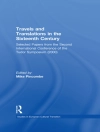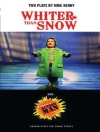In ‘Faust; a Tragedy, Translated from the German of Goethe, ‘ the renowned German literary giant Johann Wolfgang von Goethe explores profound themes of human desire, ambition, and the quest for knowledge. This monumental work, first published in the early 19th century, is characterized by its intricate verse and philosophical depth, merging elements of Romanticism with classical influences. Through the character of Faust, who makes a pact with Mephistopheles in pursuit of ultimate wisdom and earthly pleasures, Goethe delves into the moral dilemmas humans face when confronting the limitations of their existence, thus situating his work within the broader European context of existential inquiry and the struggle between enlightenment and superstition. Goethe, a polymath and pivotal figure of the Sturm und Drang movement, drew upon his diverse experiences in science, philosophy, and politics to craft this profound tragedy. His lifelong fascination with duality and the human spirit’s aspirations is reflected in Faust’s character. Goethe’s own struggles with forgiveness, reconciliation, and the pursuit of self-knowledge shine through his vigilant narrative, adding layers of personal insight to the universal themes embedded in the text. ‘Faust’ is an essential read for anyone seeking to comprehend the complexities of human nature and moral philosophy. Goethe’s eloquent prose invites readers into a world where ambition can lead to both enlightenment and despair. Engaging with this tragic masterpiece is not only a literary journey but an exploration of the timeless questions that challenge humanity, making it indispensable for scholars, students, and literary enthusiasts alike.
A propos de l’auteur
Johann Wolfgang von Goethe (1749–1832) remains one of the towering figures in world literature, having left an indelible mark on the literary, philosophical, and artistic landscape of the late eighteenth and early nineteenth centuries. A versatile genius, Goethe’s oeuvre encompasses poetry, drama, literature, theology, humanism, and science. Born in Frankfurt, Germany, his early education was extensive, setting the stage for a lifetime of learning and creation. Goethe’s magnum opus, ‘Faust; a Tragedy’ (1808), synthesizes his profound exploration of human nature, morality, and the quest for knowledge. This dramatic work profoundly influenced the Romantic and subsequent movements, characterizing the struggle of the individual against an unfathomable universe. Translations of ‘Faust’ have made this canonical text accessible worldwide, encapsulating Goethe’s rich, lyrical style and his capability to delve into the complexity of human existence. His literary style, marked by a synthesis of realism and romanticism, redefined the scope of German literature and literature at large. Not just a man of letters, Goethe was also deeply involved in studies of natural science and his ‘Theory of Colours’ challenged none other than Newton’s optics. As a statesman, he actively participated in the Weimar Court, which provided a practical counterbalance to his literary pursuits. Today, Goethe’s work still resonates, with scholars and readers alike pondering the depths of his insight into the human condition.












